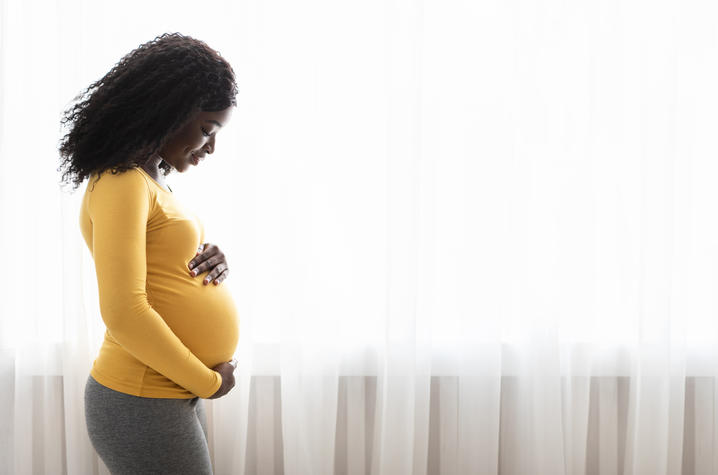What You Should Know About Pregnancy and Hypertension

The University of Kentucky Public Relations & Strategic Communications Office provides a weekly health column available for use and reprint by news media. This week's column is by Mary Beth Fisher, D.O., assistant professor of medicine at the University of Kentucky and director of the Women’s Heart Program at UK HealthCare.
LEXINGTON, Ky. (March 7, 2022) — When you find out that you are pregnant, there is a lot of work that goes into prenatal care to ensure that you and your baby are happy and healthy. However, there is one common risk factor you should particularly be aware of – hypertension in pregnancy.
High blood pressure, also called hypertension, can lead to health problems at any time during your life. Hypertension disorders during pregnancy (HDP) are one of the most common complications you can have. HDP impacts around 10% of all pregnant women and can occur at different levels of severity.
Types of HDP include chronic hypertension, gestational hypertension and preeclampsia. Chronic hypertension is high blood pressure that a woman develops before pregnancy or during the first half of pregnancy, whereas gestational hypertension occurs after 20 weeks of pregnancy. These conditions can develop into severe hypertension, which may put you at risk for more serious complications.
Chronic hypertension, gestational hypertension and severe hypertension increase the risk of the development of preeclampsia, a very serious high blood pressure disorder. Preeclampsia usually develops after 20 weeks of pregnancy and is commonly associated with organ damage in the kidneys, liver, blood or brain.
If left untreated, preeclampsia can cause serious or fatal complications for the mother and the baby, including preterm delivery or eclampsia. Eclampsia is a medical emergency when a woman develops seizures during or shortly after pregnancy.
Preeclampsia prevention involves identifying risk and seeking treatment early. If you believe you are experiencing symptoms of preeclampsia, call your OB-GYN right away. Symptoms of preeclampsia include:
- Swelling of the face or hands
- A persistent headache
- Changes or blurriness in eyesight
- Pain in the upper abdomen or shoulder
- Nausea and vomiting during the second half of pregnancy
- Sudden weight gain
- Difficulty breathing
Women who have had HDP, and especially preeclampsia, may have an increased risk of developing cardiovascular disease and high blood pressure later in life. Making lifestyle changes can decrease your risk of having high blood pressure or cardiovascular disease in the future.
Here are some lifestyle changes you can make to decrease your risk:
- Quit smoking.
- Lose weight if you are overweight.
- Limit alcohol intake.
- Exercise regularly.
- Cut back on salt and have a healthier diet.
- Relieve stress.
For some, lifestyle changes may not be enough. Consult with your physician to see if they recommend managing your blood pressure with medication.
As the state’s flagship, land-grant institution, the University of Kentucky exists to advance the Commonwealth. We do that by preparing the next generation of leaders — placing students at the heart of everything we do — and transforming the lives of Kentuckians through education, research and creative work, service and health care. We pride ourselves on being a catalyst for breakthroughs and a force for healing, a place where ingenuity unfolds. It's all made possible by our people — visionaries, disruptors and pioneers — who make up 200 academic programs, a $476.5 million research and development enterprise and a world-class medical center, all on one campus.




